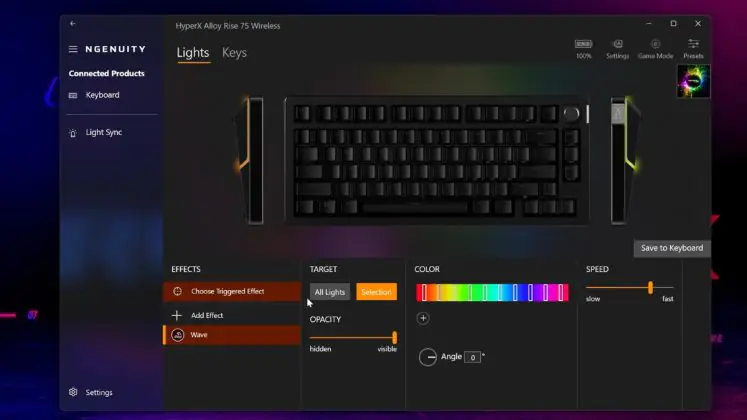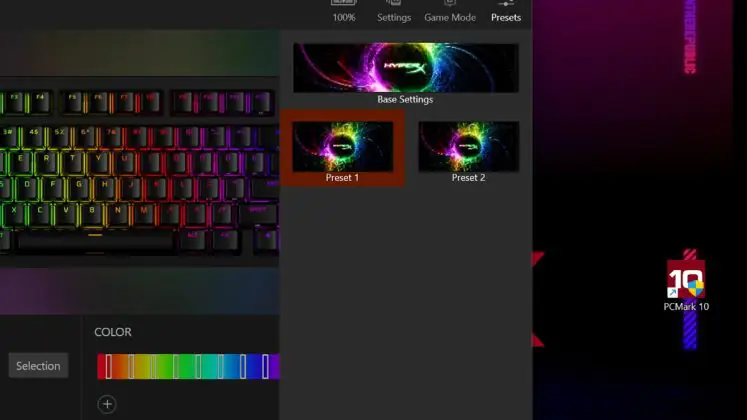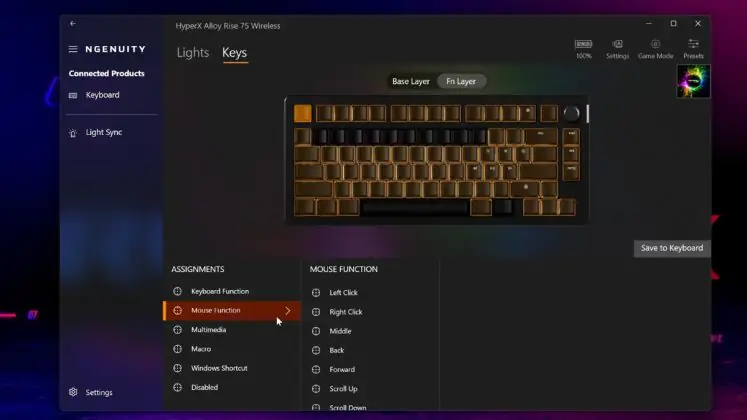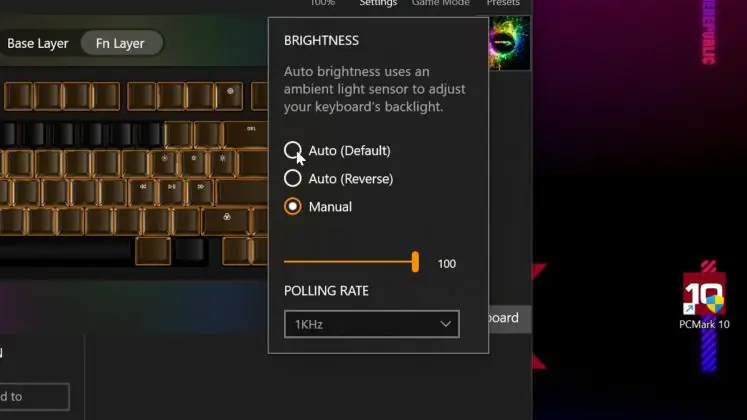© ROOT-NATION.com - Use of content is permitted with a backlink.
A long time ago, it feels like in a past life, I used to review HyperX tech. Back then, HyperX gaming gear was premium, cool, high-quality, and exciting. Time has passed, a lot has happened, but now, once again, HyperX gear is back for review. This time, it’s the HyperX Alloy Rise 75 Wireless keyboard. So, let’s see just how cool, high-quality, and interesting this particular new release really is.
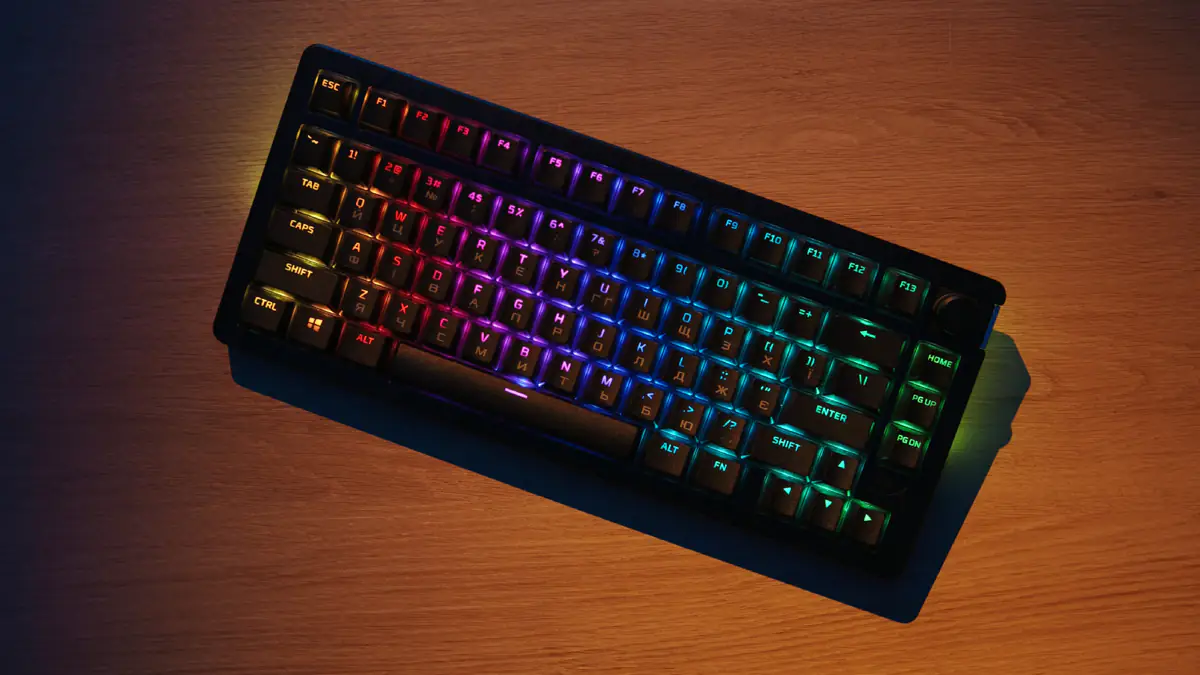
Technical characteristics
- Switches: HyperX Red Linear
- Polling frequency: 1000 Hz
- Game mode: present
- Anti-hosting: 100%
- N-key rollover: yes
- Battery capacity: 6000 mAh
- Battery endurance: up to 80 hours with 50% backlight, up to 1500 hours without backlight
- Backlight: RGB, 5 brightness levels + auto-adjustment
- Weight: 1038 g
- Dimensions: 330.8×142.2×48.9 mm
Video review of HyperX Alloy Rise 75 Wireless

Package contents and price
One thing is certain — it’s a premium product. The price is around $290 or €270. And yes, this is a 75% model, not a full-size one, which is already clear from the name.
As for the packaging, it’s not overly extravagant. It includes the warranty, instructions, a Type-A to Type-C cable, and a keycap and switch puller. However, the unboxing experience is quite nice, with everything packed neatly and pleasantly.
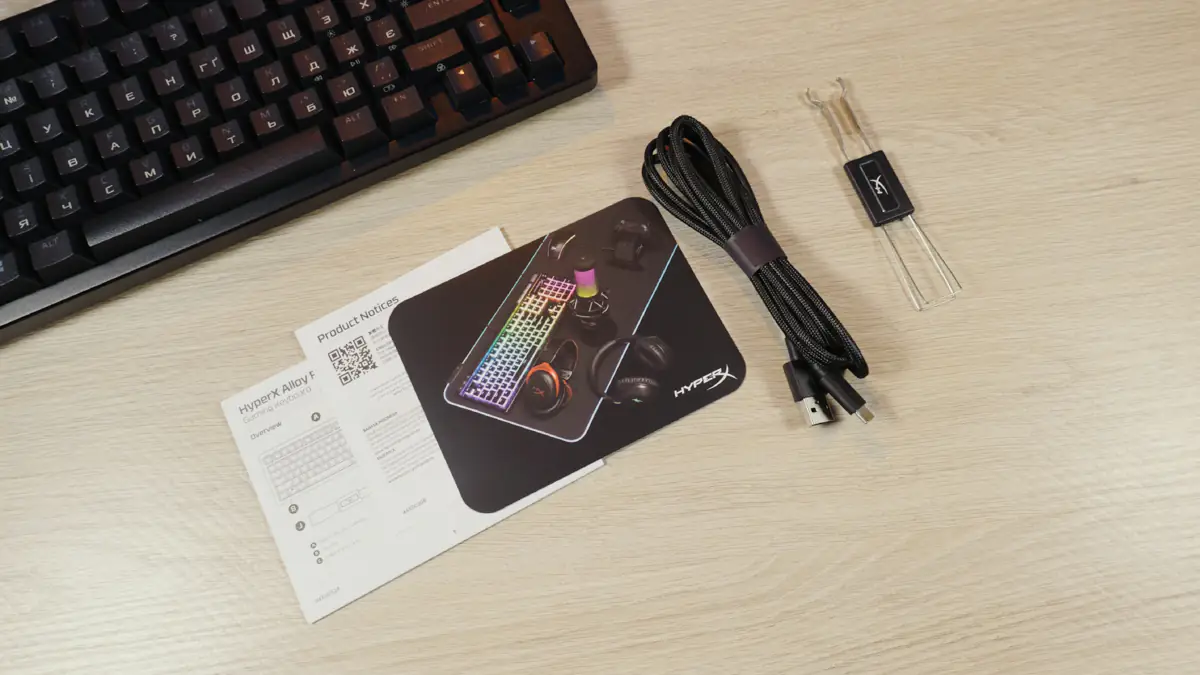
Design and ergonomics
The first thing that stands out when holding the HyperX Alloy Rise 75 Wireless is that it requires a specific grip. The top metal “cover” that protects the switches is held in place by strong magnets, but it comes off relatively easily. Personally, when I carry the keyboard, my natural grip tends to fall exactly where the tabs for removing the cover are located.
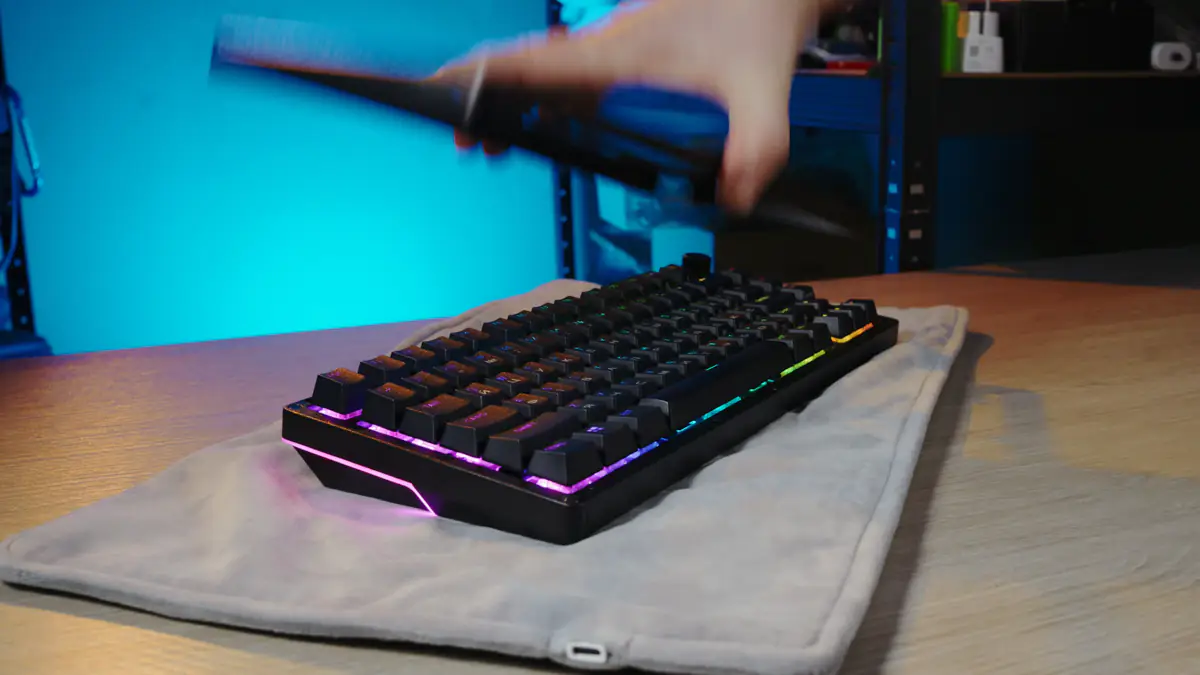
So, when I try to lift the keyboard, it’s the cover that ends up in my hands instead of the keyboard itself. This points to its weight, which, together with the cable, exceeds… one kilogram. To give you some perspective, I’ve rarely come across full-size keyboards that weigh more than a kilogram. Yet, this is a 75% keyboard, and it weighs over a kilogram.
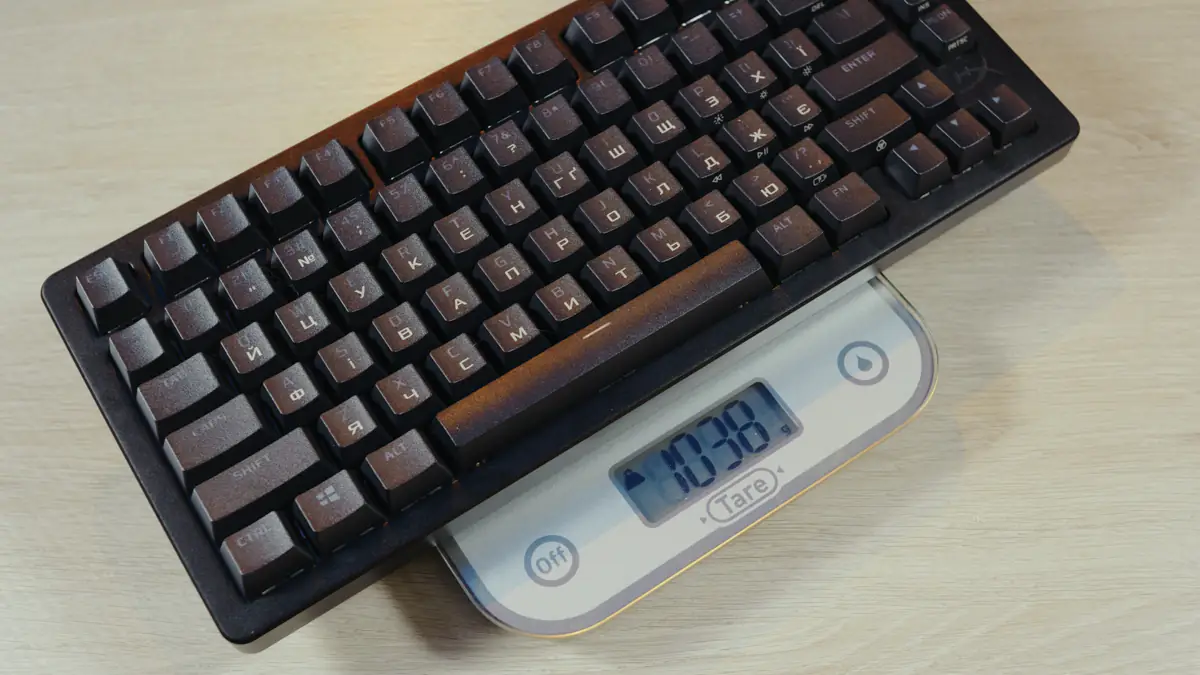
This means that the body is fully metal, with minimal plastic. Overall, even when turned off, the HyperX Alloy Rise 75 Wireless looks exceptionally solid. It’s only available in black, coated with matte paint, and has more of an industrial tool aesthetic than a typical gaming keyboard look.
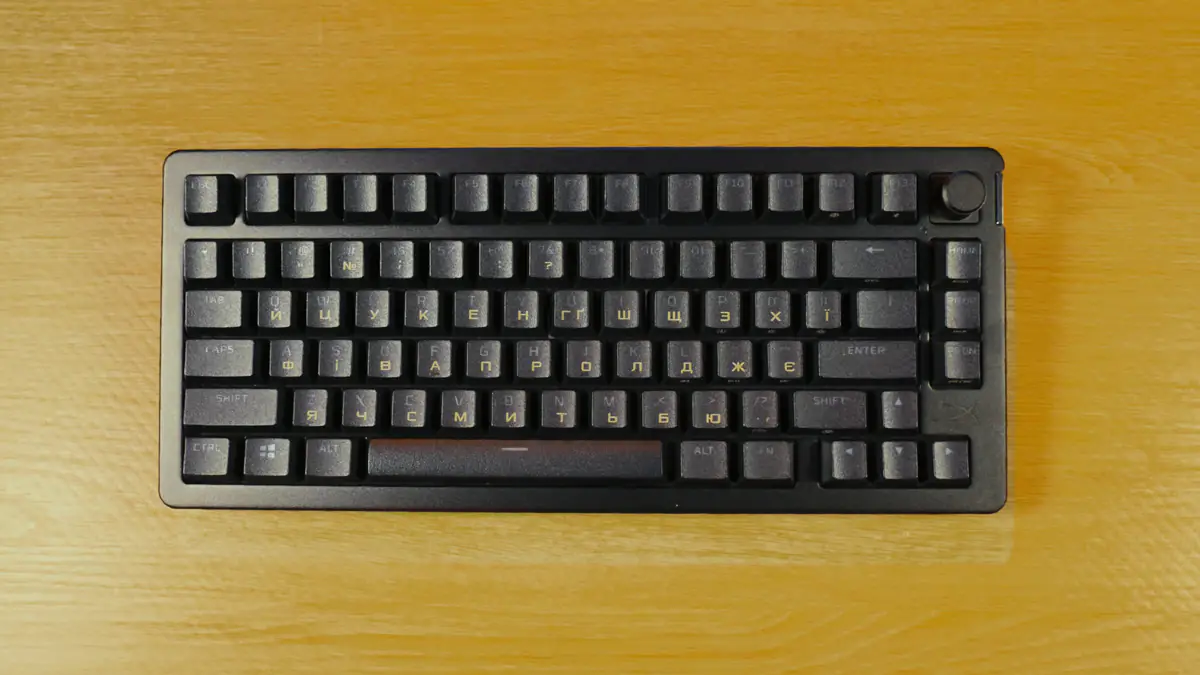
The front of the entire keyboard is black. On the right, the HyperX logo stands out in silver, which is also attached with magnets. Why magnets? Because on the HyperX website, you can purchase replacement logos.

The set costs $25 for four plates, but one thing is clear — judging by the photos and the feel of the standard one, they are made with quality and attention to tactile details. By the way, you can also replace the magnetic top cover — for $40, you can buy a white or blue version.
Read also: Epomaker x AULA F65 keyboard review: Solid Keyboard That Looks The Part
On the left side of the edge, there’s nothing. The interesting features are on the back. Specifically, there’s a deep cutout for the Type-C charging and sync cable, along with a switch that toggles between three positions.
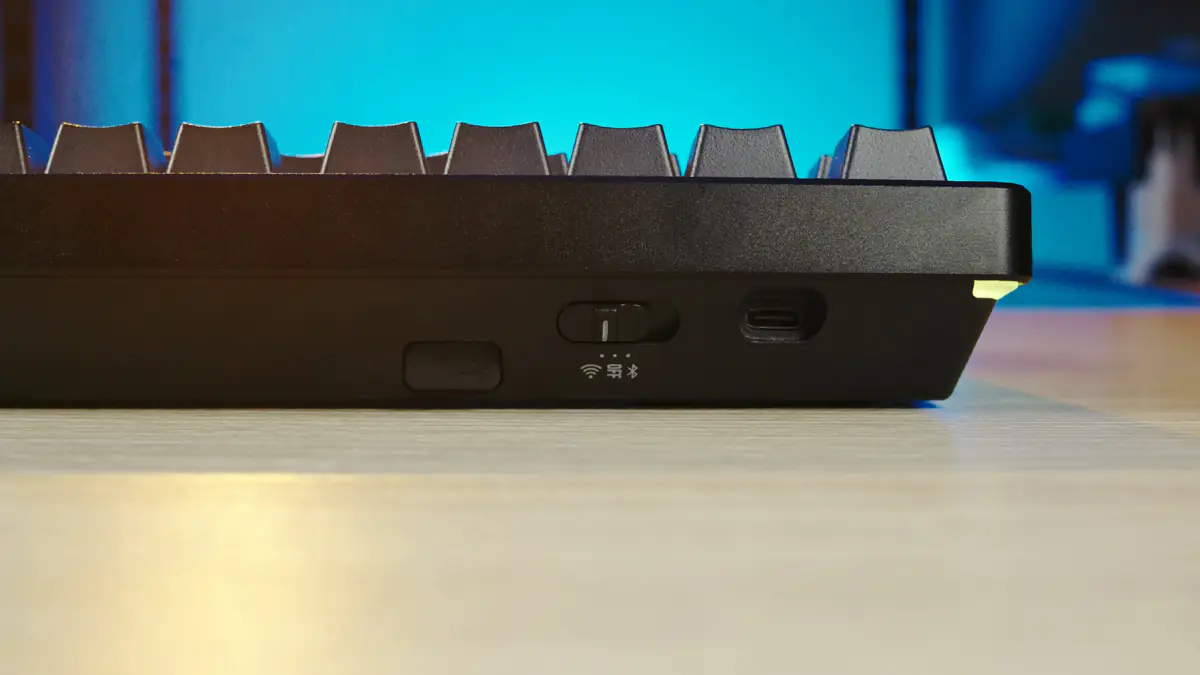
And there’s also the 2.4 GHz adapter, which is also magnetic.
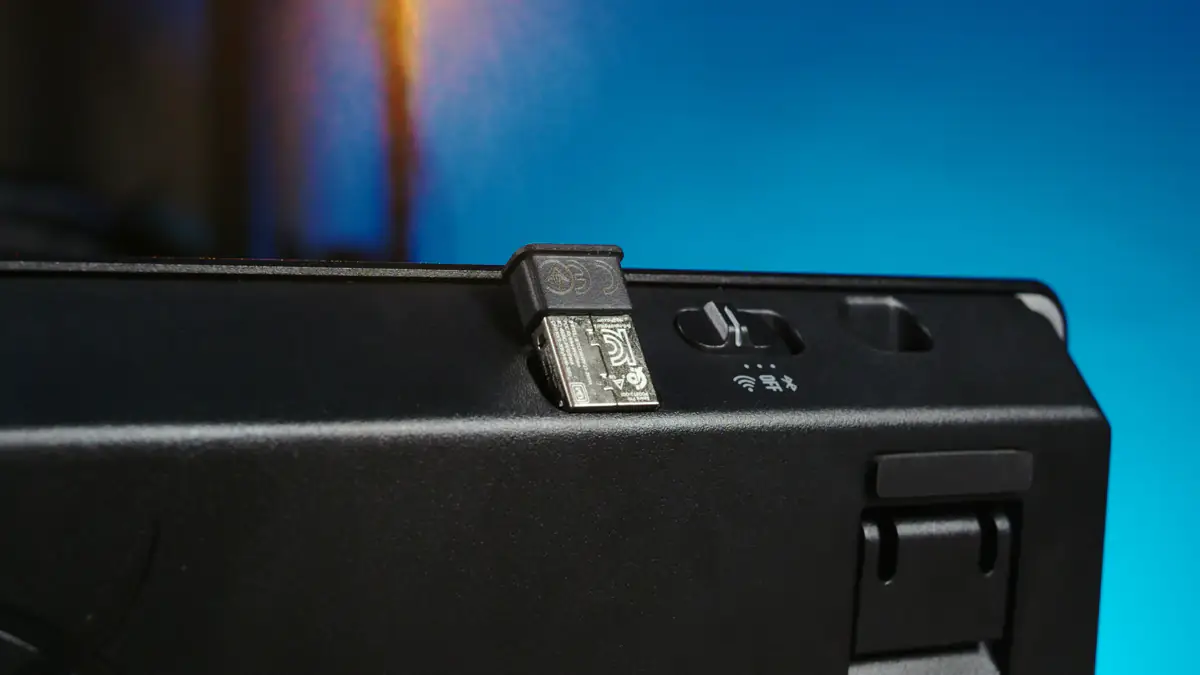
On the bottom, there are only retractable feet. This is nearly the only plastic element on the keyboard, and I couldn’t find exact information on the tilt angle. By default, the keyboard has a tilt of about 2-3 degrees, and the feet add roughly the same amount.
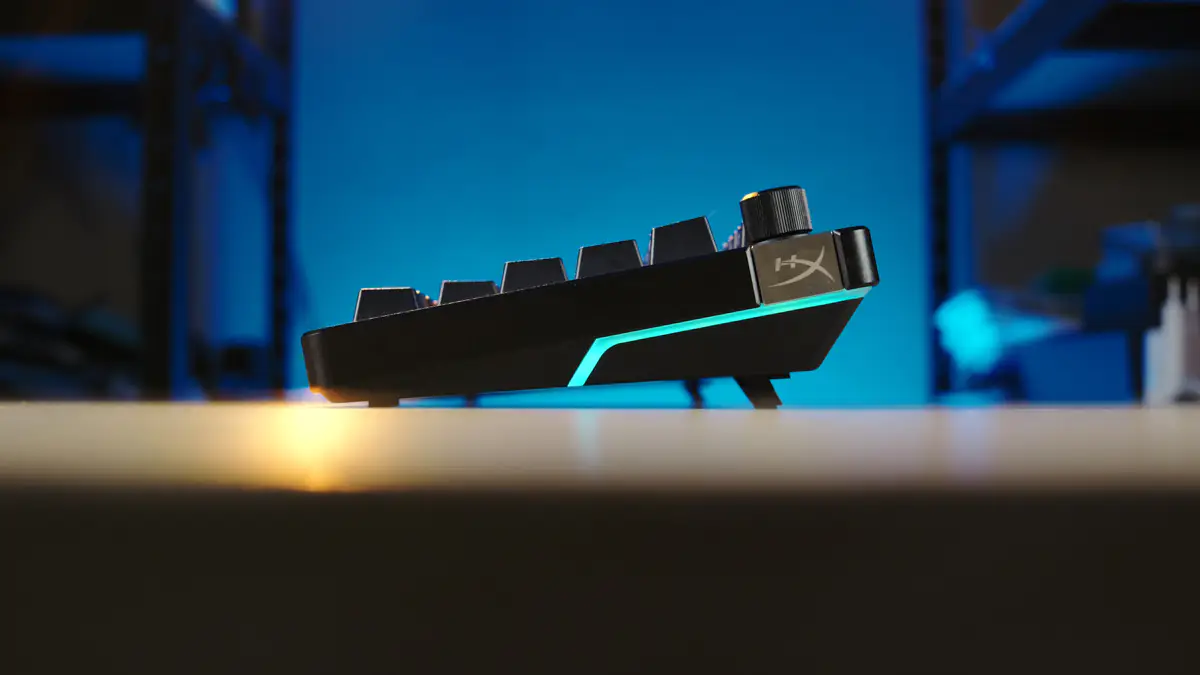
By the way, when I said the feet are the only plastic element, I wasn’t kidding. Even the media control wheel, located at the top right, is made of metal. I should also mention the light sensor, which is slightly below the wheel.
Specifications
In terms of specifications, the HyperX Alloy Rise 75 Wireless measures 330.8×142.2×48.9 mm. It features a 1000 Hz polling rate, 100% anti-ghosting, and N-Key rollover support. The keyboard also supports 5 levels of RGB lighting and offers 10 customizable profiles, which can be saved directly on the device. It can operate in wired, Bluetooth, or 2.4 GHz wireless mode.
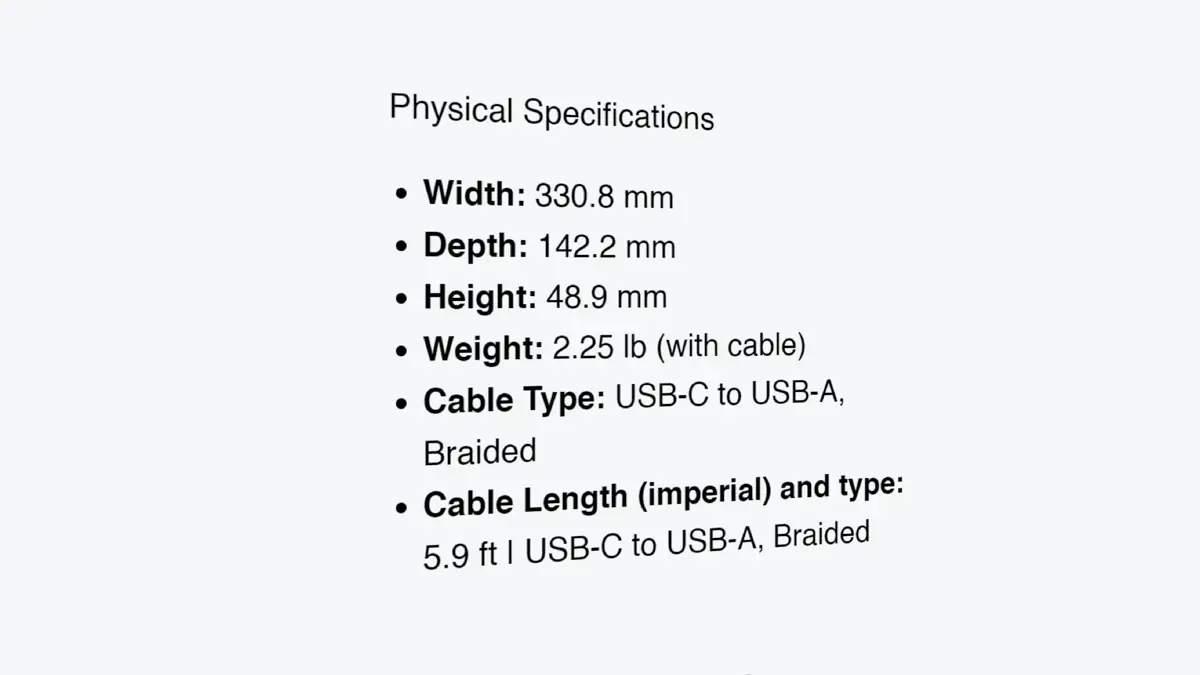
However, for the first time that I can recall, I couldn’t find the Bluetooth version supported by the keyboard. This is important because the newer the version, the fewer interference issues it tends to have. On the positive side, there are three Bluetooth profiles, and switching between them is quite fast.
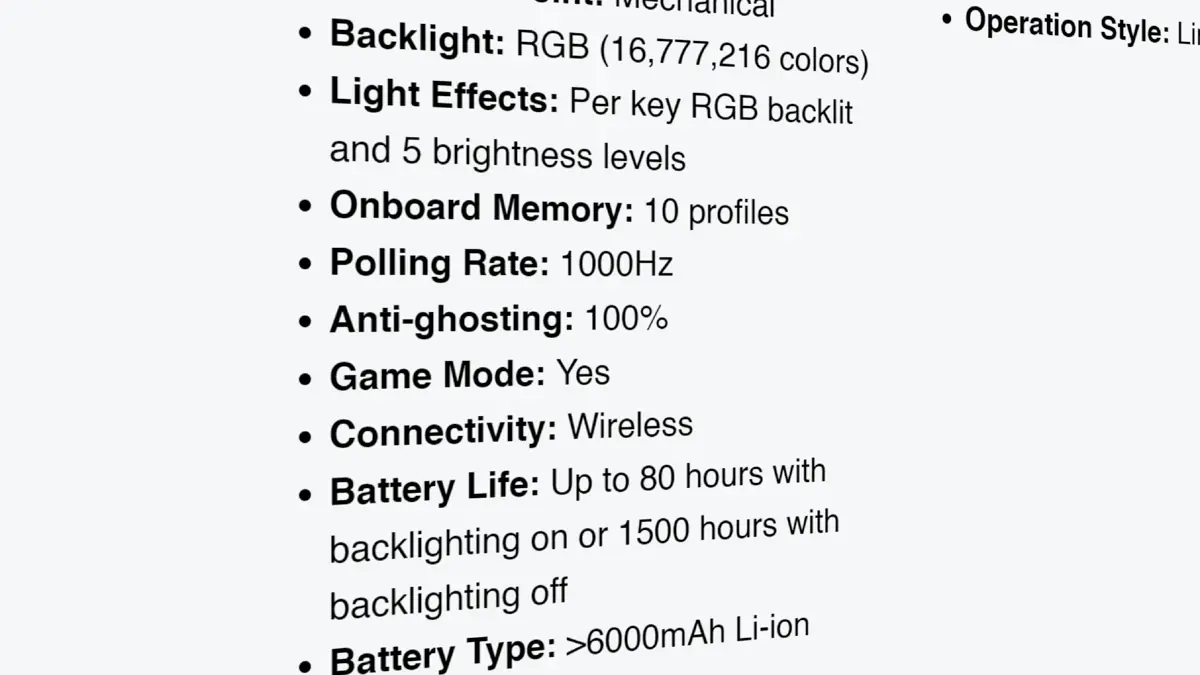
The HyperX Alloy Rise 75 Wireless features a 6000 mAh lithium-polymer battery, with the manufacturer claiming up to 80 hours of use at 50% backlight brightness or up to 1500 hours with the backlight off. Additionally, the keyboard can operate while charging, and it can be charged from any power source, including high-wattage ones.
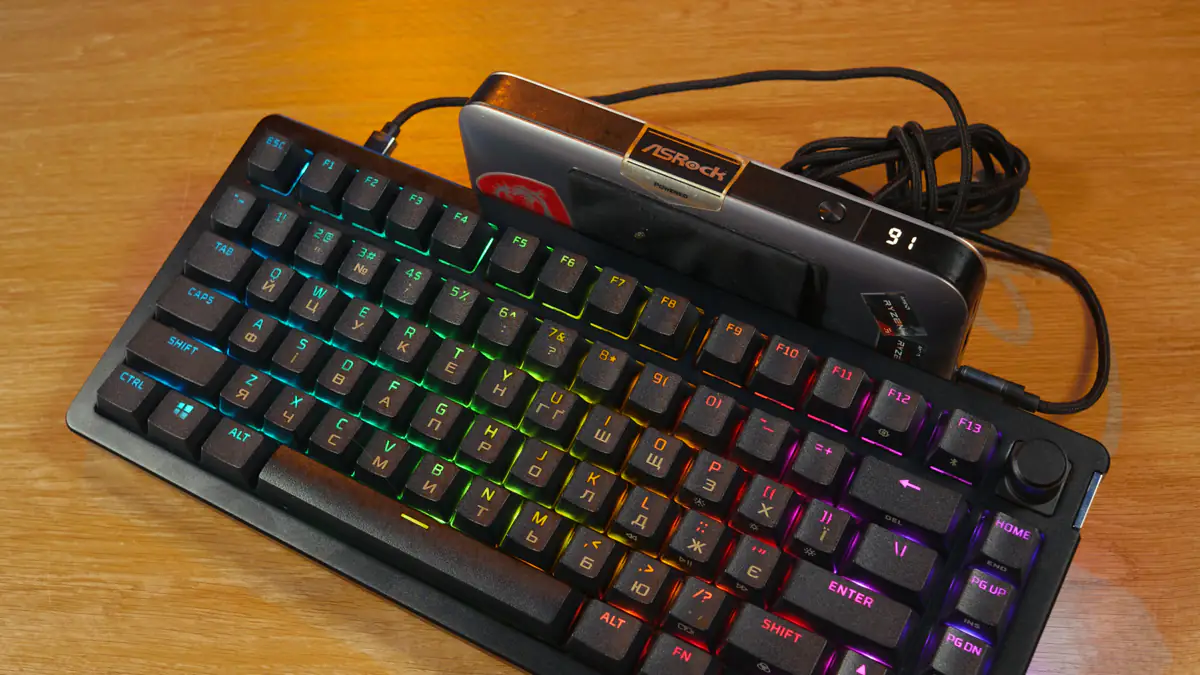
You might wonder how it’s possible to test battery life at 50% brightness when there are only five brightness levels. The answer is simple: we start counting from 0. So, the levels are 0%, 25%, 50%, 75%, and 100%. The backlight can also automatically adjust its brightness based on the surrounding environment, but this feature is configurable through the proprietary NGENUITY software.
Software
The worst thing I can say about this software is that the page on the official website, which should lead to a list of compatible components, is empty.
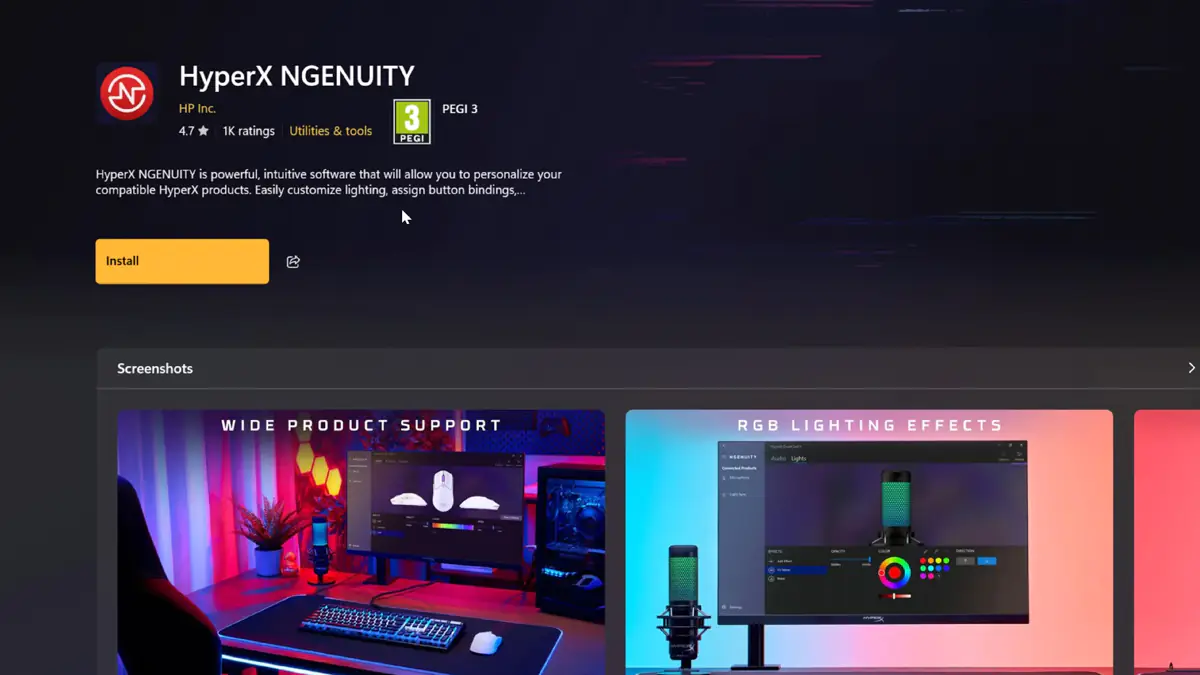
Aside from that, the software is great. It can be downloaded either from the official website via an EXE file or from the Microsoft Store, and it’s also available for smartphones (Android / iOS).
Typically, the software requires updating the firmware for components, which means you need to connect the keyboard via USB. However, once that’s done, it unlocks a very broad range of customization options.
The backlight is highly customizable, with a wide range of options, including presets for key presses. Don’t forget that there’s also backlighting on the sides, which can be adjusted or turned off. You can change the auto-brightness settings, and even reverse it if needed. Macros and key combinations for the Fn key can be customized in great detail, and all of this can be saved to three standard profiles, with the option to add up to ten profiles in total.
Keyboard shortcuts
I’ll say a couple of words about the key combinations for control—there are essentially only 9 by default. However, to use them, you need to look for additional markings on some of the keycaps. Since the HyperX Alloy Rise 75 Wireless is a 75% keyboard, it needs to compensate for a lot of functions, and the markings on the side of the keycaps are a good solution for this.
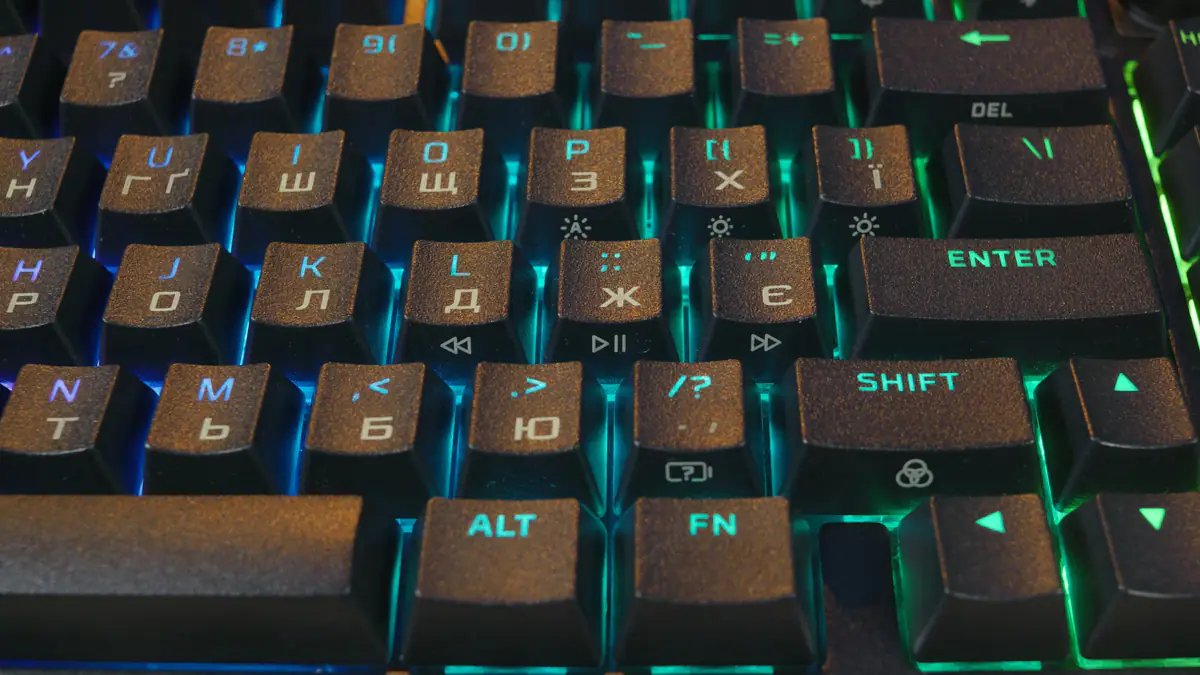
The functions themselves are great, sometimes even ingenious. By holding down Fn + Shift and pressing any key from 1 to 0 on the number row, you can switch between different settings profiles. A quick press of Fn + Shift switches between the first three profiles. Holding down Fn + “?/.”, which is the key just above Fn, shows the battery status.
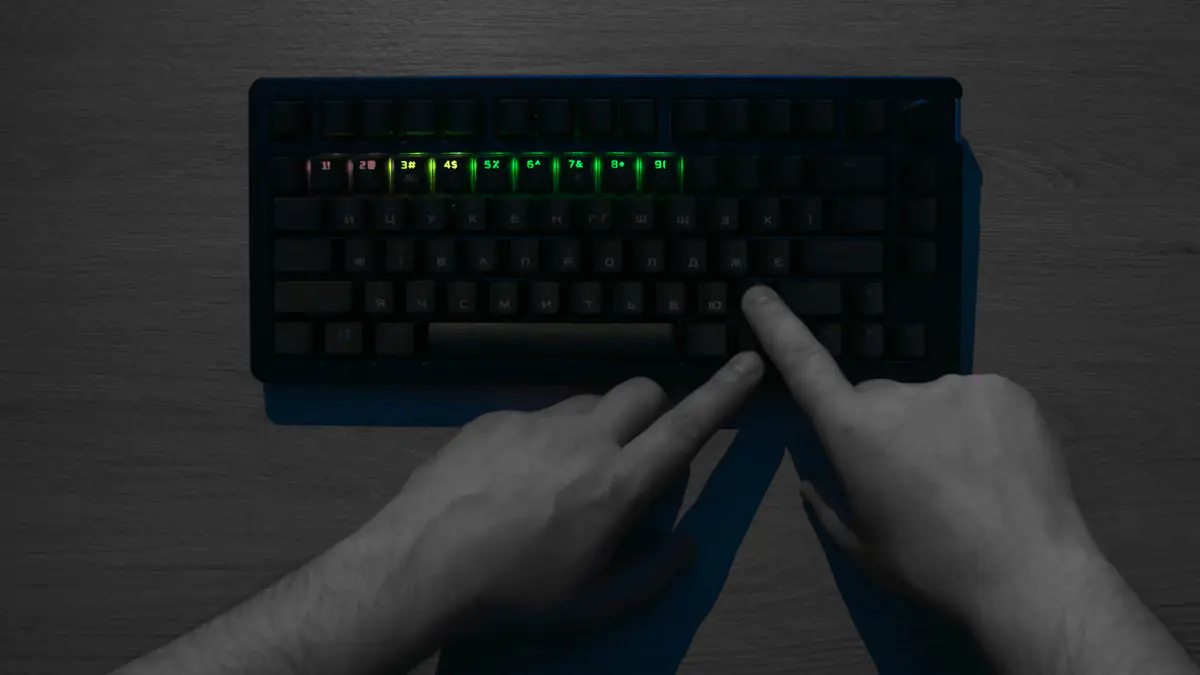
Similarly, you can control the brightness and gaming mode with button lock features. You can even switch between Bluetooth profiles. Holding down the spacebar and Fn for 5 seconds resets the settings.
Operating experience
In terms of user experience, I’ll start with the good news. The internal structure is immediately noticeable, even in the promotional photos, and it definitely justifies the price of the HyperX Alloy Rise 75 Wireless. Specifically, it features a Gasket mount, or “gasket mounting system.” Both the switches and stabilizers are factory-lubed. This has a significant impact on the sound of key presses, which will be demonstrated in the video review above.
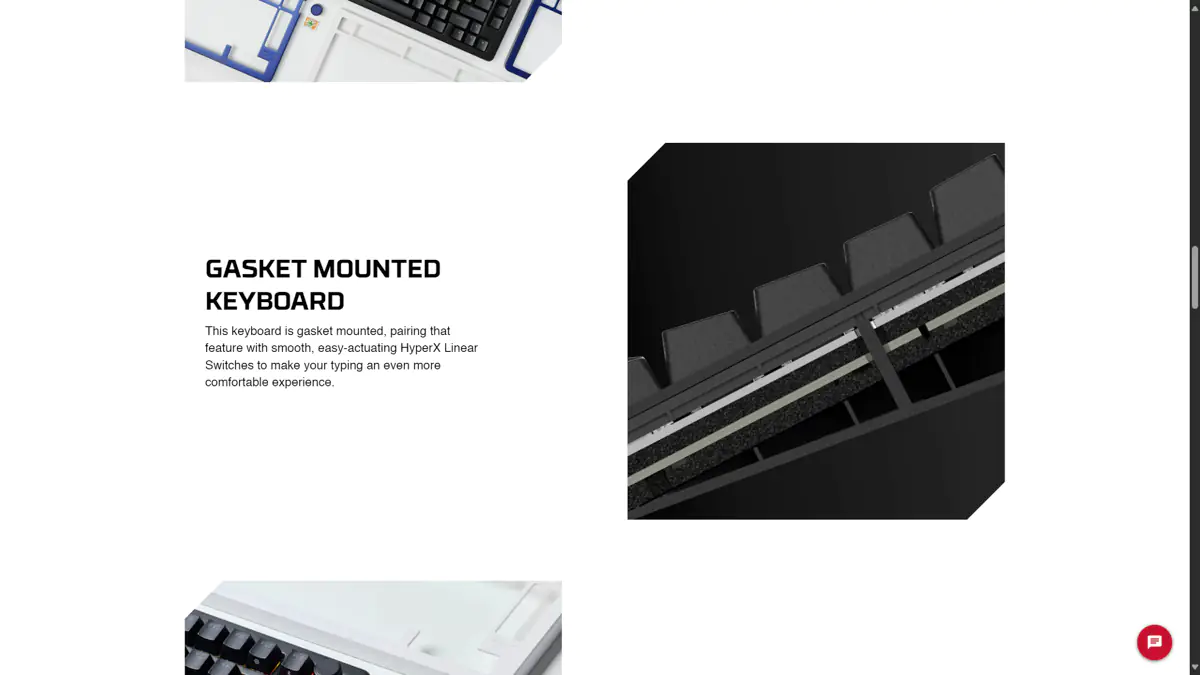
The backlighting is impressive, especially since the keyboard supports Windows Dynamic Lighting. This feature allows you to control the backlight at the operating system level without needing to install any additional software. I’d heard about it before, but only saw it in action now. The system recognized the keyboard immediately after connecting it via the 2.4 GHz adapter.
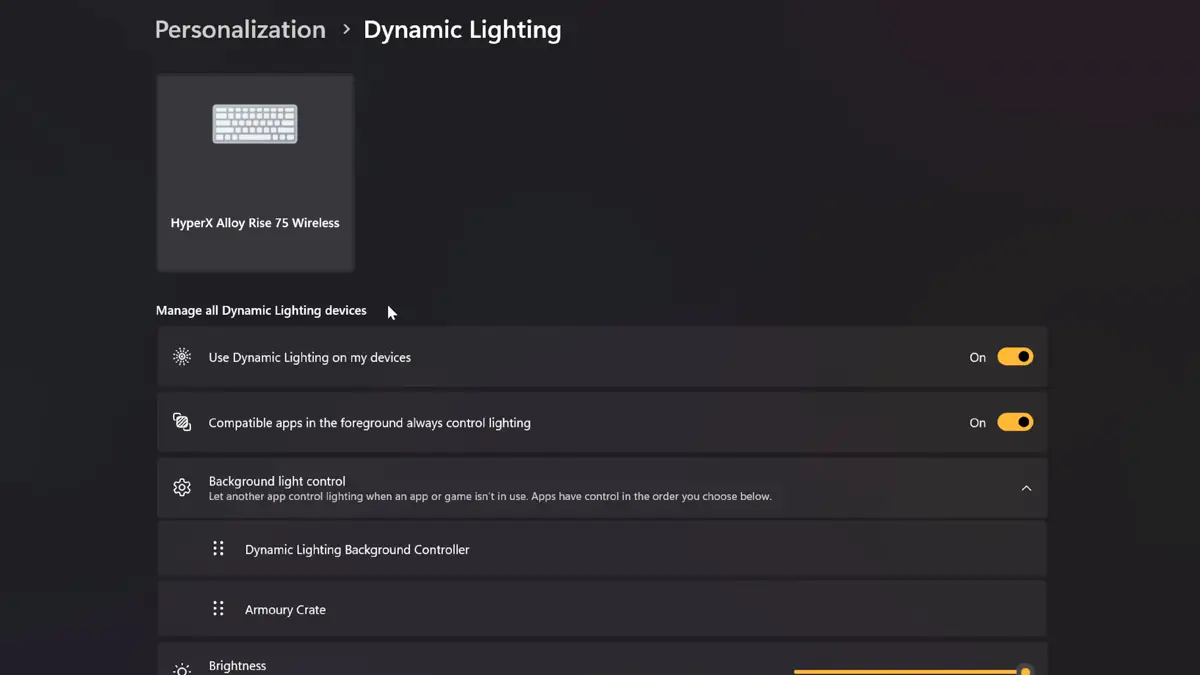
Visually, the backlighting is almost the best I’ve seen from HyperX. I personally prefer the version with semi-transparent keycaps at the bottom, like the “pudding” style. However, the key difference here is that these keycaps are made of PBT, not ABS, meaning you won’t see any oily marks after two years of use.

The keycaps aren’t just PBT; they also have a coated surface that adds extra friction for your fingertips, meaning your fingers will glide less. This isn’t a cheap feature—it’s not like it’s worth two cents or 500,000 Russian rubles, or whatever the current exchange rate is. It’s costly to produce, but it’s reliable. Additionally, the switches are HyperX Linear Red, which are hot-swappable.
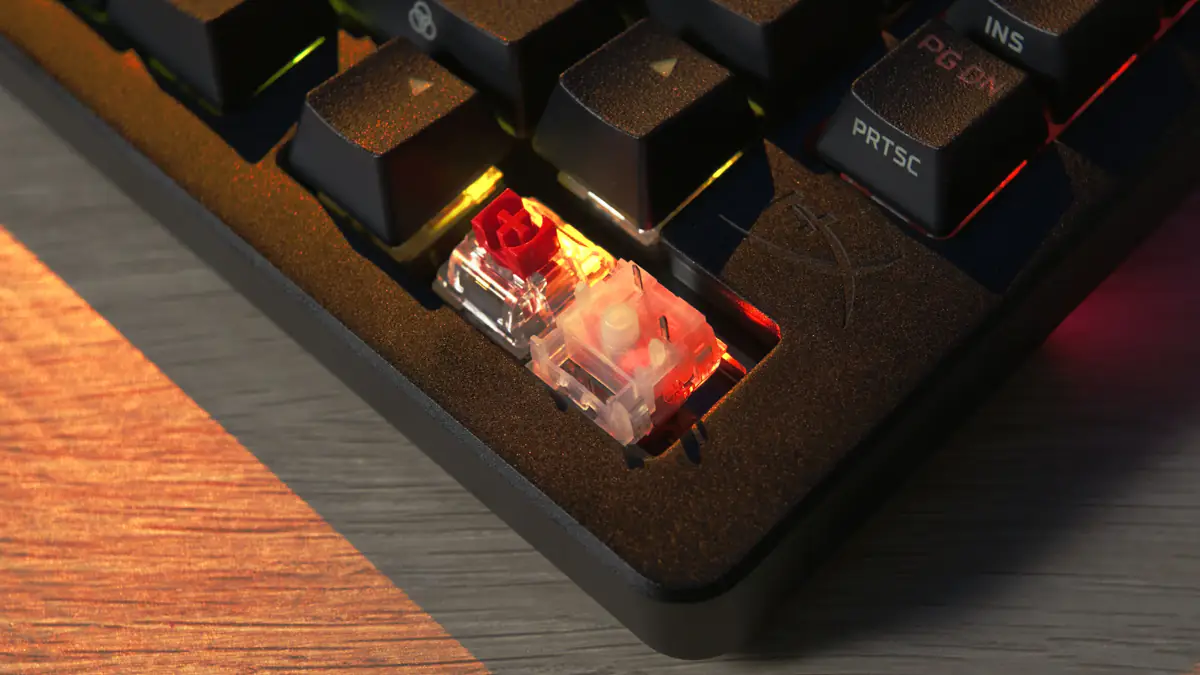
Any keyboard with quality “reds” automatically earns a spot in the “could use for years” category for me. However, getting used to a 75% layout is a silly idea for someone who spends 99% of their time typing and only 1% gaming. For gamers? It’s a whole different story. Plus, as I understand it, the keyboard uses the standard MX profile, which means it’s compatible with Cherry switches.
Conclusions
This model feels like a very solid foundation for gradually customizing it to your preferences. Yes, the proprietary add-ons are expensive, and the magnetic design isn’t always fully thought out, but this keyboard is no longer one that you just use and that’s it. You’ll likely want to take care of it, and customization will almost certainly be something you’ll enjoy. Plus, the customization process will be very pleasant and convenient.
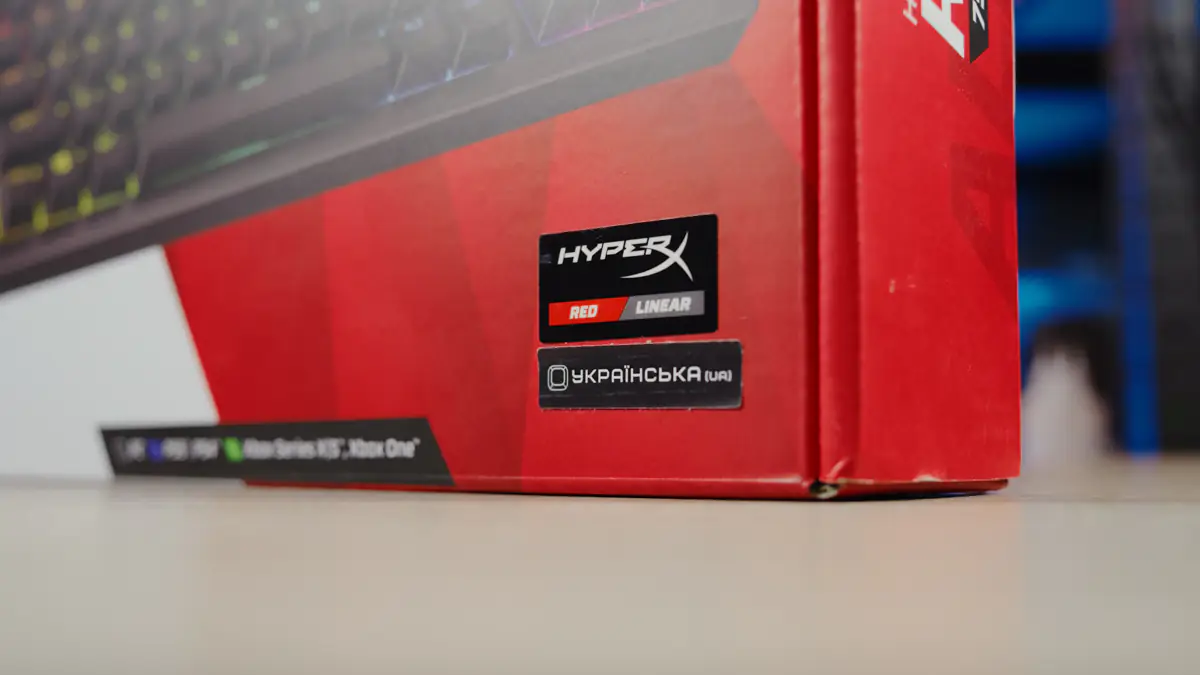
Add to that versatility, battery life, and a 2-year warranty, and you get the simple fact that the HyperX Alloy Rise 75 Wireless is one of the best, if not the best, 75% keyboards on the market. So, if it’s within your budget… I definitely recommend it.



